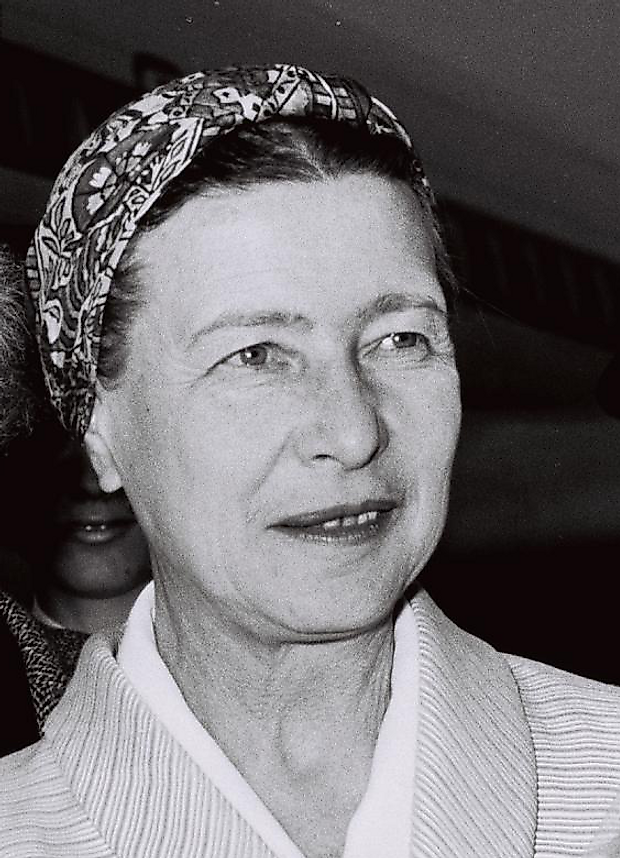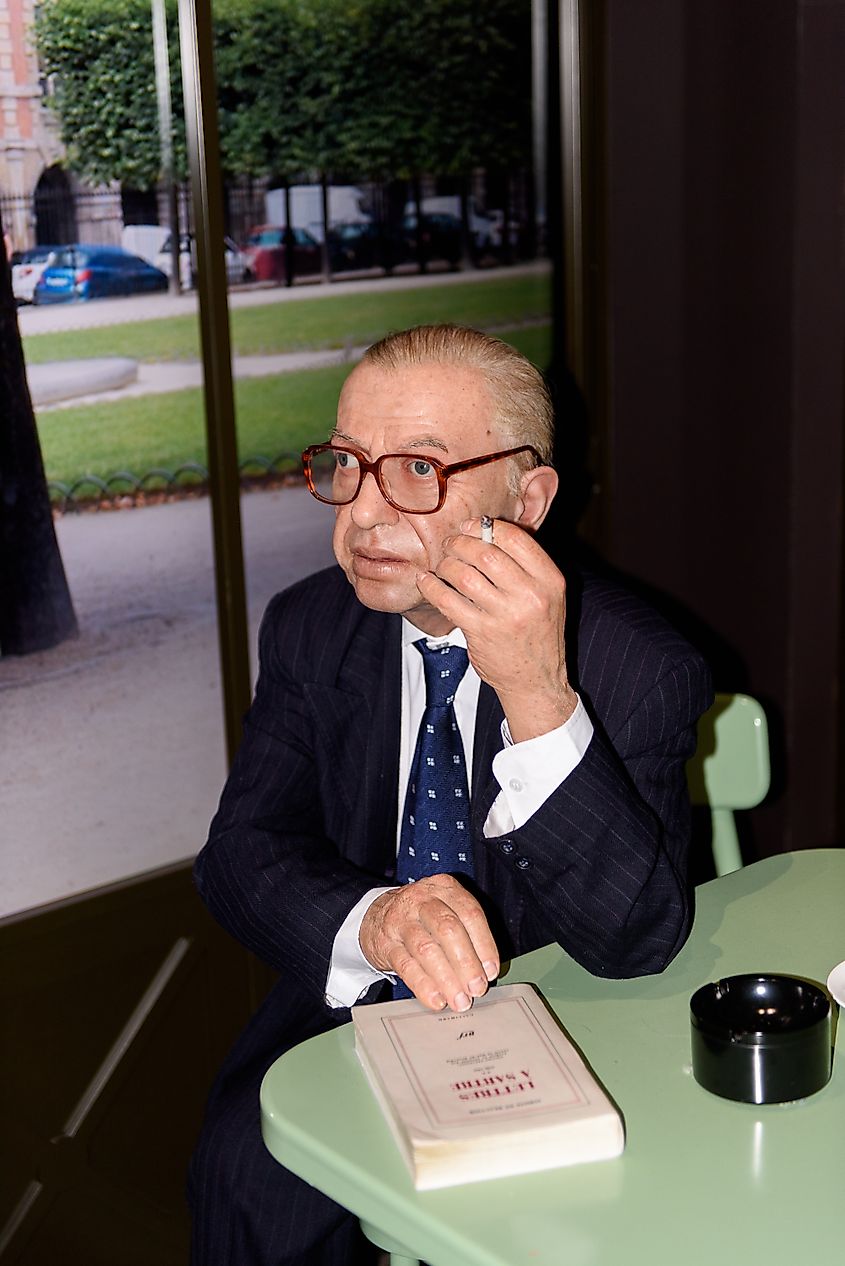
Simone de Beauvoir's Perspective On Existential Feminism
Today, in the Western world, women enjoy many of the same opportunities as men. However, throughout history, men and women haven't always been treated as equals. Feminist thinkers such as Simone De Beauvoir revolutionized the women's rights movement with ideas of women determining their own destiny and society shaping gender. De Beauvoir was an influential feminist and an existentialist French philosopher. She is most well known for her work The Second Sex. Here we will explore who Simone de Beauvoir was and how her existential feminism changed the feminist movement forever.
Who was Simone De Beauvoir?

Simone De Beauvoir was a French writer, feminist, and philosopher. She is often considered the founder of the feminist movement as it is today. Her most well-known work is the book "The Second Sex." This is the book that was part of the spark for second-wave feminism. Beyond her writing in feminism, De Beauvoir wrote a series of other works, including four philosophy books. De Beauvoir was an influential existentialist. In her philosophy, she covered a range of topics, from gender and ethics to aging.
Simone De Beauvoir's drive to write and go into academia started at an early age. Her father's family went bankrupt and could not offer a dowry to a worthy husband. This did not bother De Beauvoir since she planned to pursue writing and her education to have a good life. In her early life, De Beauvoir contemplated becoming a nun. Her devoted Catholic mother sent her to study at a monastery. However, at 14, De Beauvoir had a crisis of faith and became an atheist. She switched her focus to studying mathematics, literature, and philosophy.
Beyond her academic achievements, De Beauvoir is also known as the partner of the existentialist philosopher Jean-Paul Sartre. They had a long-term unconventional relationship that involved romantic and intellectual partnership for over 50 years. They never got married, had children, and were free to see other people. They both impacted each other's careers but developed their own unique philosophies and led distinct lives.
The Second Sex

De Beauvoir's work "The Second Sex" is one of the most influential feminist books. Published in 1949, it was initially two volumes, 'Facts and Myths,' and 'Lived Experience'. Overall, The Second Sex critiques the patriarchal culture and the treatment of women. In the first volume, De Beauvoir questions "What is a woman?" Here, De Beauvoir argues that society views men as the default setting and that women are seen only in relation to men. The Second Sex was heavily criticized and remains a controversial work. The Vatican even added it to their list of banned books at the time it was published.
Despite the book's controversy, The Second Sex was quickly translated into English and read in America. It gained recognition for breaking the biological argument many people had and continue to have against feminism. The biological argument against feminism is that the biological differences between men and women explain each gender's different societal roles, and these cannot be overcome. However, De Beauvoir dives into history around the treatment of men and women. She concludes that “one is not born, but rather becomes, a woman." She emphasizes the importance of social conditioning. She believed the environment people grew up in shaped the ideas they have about gender and who they become.
According to Simone De Beauvoir, women should not have to follow the societal script of what it means to be a woman and how to perform their gender. Instead, she believed women should be able to determine who they want to be and what they want their destiny to be. De Beauvoir argues a woman is not an idea that can be predetermined. Being a woman is determined by how the woman wants and chooses to be.
The Limits of Existential Freedom

To solve the historical discrimination against women, De Beauvoir turns to existentialism, a philosophy that prioritizes humans' intrinsic freedom. In existentialist thought, people are intrinsically free and have the freedom to make choices. Intrinsic freedom means this freedom cannot be given or taken away. This type of freedom always exists for every person, regardless of gender. This doesn't mean you can always choose your situation. However, you are always free to choose how to deal with your situation. De Beauvoir argues that women do have this existential freedom and should be free to choose their own path in life.
De Beauvoir recognized the limits of existential freedom. Existential freedom wouldn't make women equals in the eyes of the law. De Beauvoir advocated for the legal rights of women and for changes in societal structures. These were influential in opposing the anti-abortion campaign of April 1971. She argued that women having control over their fertility allowed them to be more free instead of 'slaves at home.' She also urged others to take action to break down institutionalized barriers. These were necessary changes to advance the rights of women.
How Simone De Beauvoir Influenced Future Feminism

De Beauvoir believed an important part of feminism was realizing that being a woman was non-objectionable. Women, she believed, had to live their own lives, taking an active position in their destiny. These ideas might seem commonplace in the West today, but they were revolutionary at the time. De Beauvoir's work undoubtedly influenced the Second Wave feminism movement. Her ideas influenced the development of women's studies programs at Western universities.
Overall, Simone De Beauvoir's unique ideas of existential feminism advanced feminism to where it is today in the West. While her book caused a lot of controversy then, this proves her unique and revolutionary ideas. Today, these ideas are still relevant and still worth sharing. To learn more about Simone De Beauvoir's philosophy, grab a copy of her book The Second Sex and decide if you agree with her.











